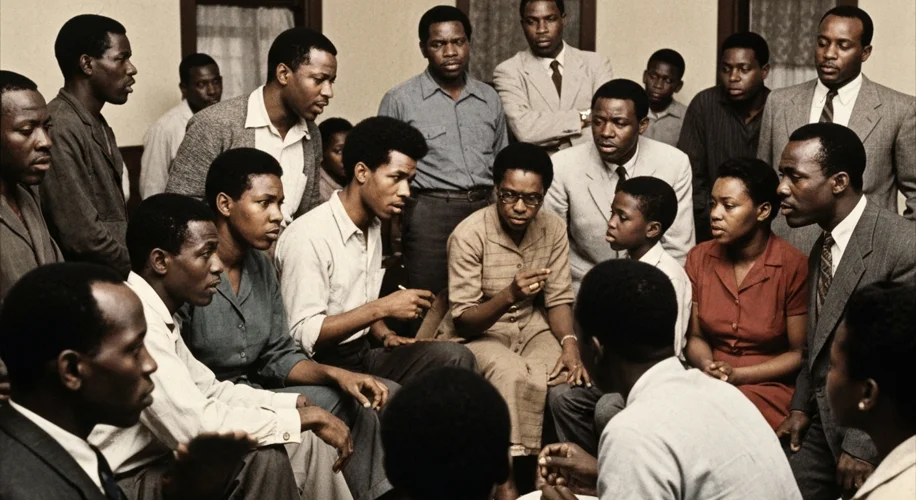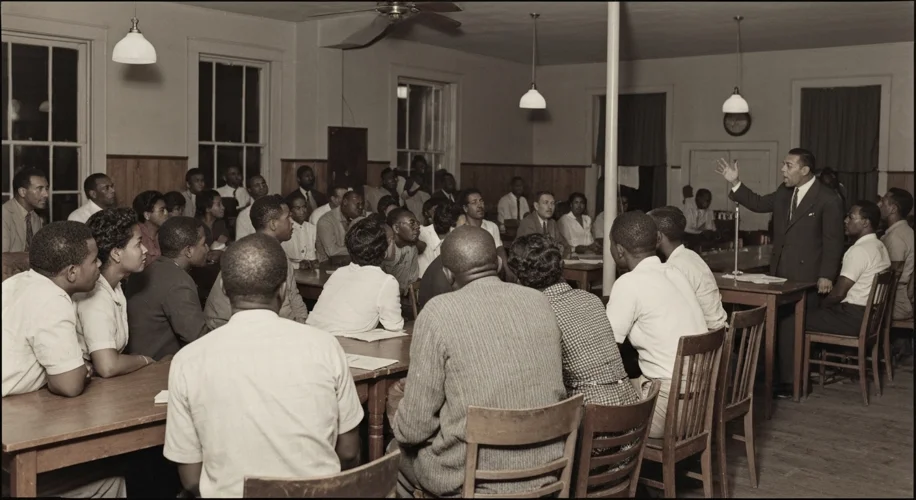In the mid-20th century, a powerful new voice emerged from within America’s Black communities, proclaiming a unique vision of Islam and Black liberation: the Nation of Islam (NOI). Founded in Detroit in the 1930s and gaining significant traction under the leadership of Elijah Muhammad from the 1940s and 1950s, the NOI offered a theology, a narrative, and a path forward that was both captivating and controversial. While many African Americans were drawn to its message of self-reliance, racial pride, and spiritual awakening, the burgeoning movement also faced scrutiny and skepticism from established Black Muslim communities and individuals across the nation.
To understand this complex dynamic, we must journey back to a time when the very definition of Black identity and religious practice was being fiercely debated. For decades prior to the NOI’s rise, Black Muslims in America, though a relatively small segment of the population, had been practicing Islam according to traditional Sunni or Ahmadiyya tenets. These communities, often rooted in earlier waves of African immigration or converts from existing Black denominations, possessed a different understanding of Islamic theology and practice.
When Elijah Muhammad, a charismatic figure who claimed to be a messenger from Allah, began expounding his teachings, many established Muslims found his message deeply troubling. The NOI’s theology, which included the belief that the “white man” was a devil created by the “black God” Yacub, and that Elijah Muhammad himself was a divine messenger, deviated sharply from orthodox Islamic interpretations. Orthodox Muslims generally adhere to the Quran and the Sunnah (the teachings and practices of the Prophet Muhammad) as the primary sources of faith and practice. The NOI’s emphasis on Elijah Muhammad’s unique role and its distinctive creation story were viewed as heretical by many.
One prominent voice of dissent came from Imam William D. Muhammad (later known as Warith Deen Mohammed), son of Elijah Muhammad, who eventually led the NOI towards orthodox Sunni Islam. However, even in the earlier years, there were many who, while perhaps sympathetic to the NOI’s emphasis on Black empowerment, could not reconcile its theological pronouncements with their understanding of Islam. Figures associated with the Moorish Science Temple of America, another Black religious movement that predated the NOI, often expressed reservations. While the Moorish Science Temple had its own unique beliefs, it also emphasized a more universalist and less racially exclusive interpretation of Islam compared to the early NOI.

The core of the disagreement often lay in the NOI’s racialized theology. While the NOI preached Black superiority and separation from white society, many traditional Black Muslims advocated for Islam as a universal faith, open to all races, and stressed the importance of integration and peaceful coexistence. They saw the NOI’s rhetoric as potentially alienating and counterproductive to the broader struggle for civil rights. The emphasis on a “Black God” and the literal interpretation of white people as inherently evil contradicted the inclusive message of submission to one God that is central to traditional Islam.
Furthermore, the leadership style and organizational structure of the NOI also drew criticism. While Elijah Muhammad commanded immense loyalty from his followers, his authoritarian approach and the strict control he exerted over the lives of his adherents were subjects of concern for some. They questioned whether this model truly fostered the spiritual and intellectual freedom they associated with Islamic practice.
For instance, many orthodox Muslims viewed the NOI’s dietary laws, dress codes, and economic programs through the lens of traditional Islamic jurisprudence. While the NOI’s Black economic self-sufficiency initiatives were laudable, their ideological underpinnings and the specific ways they were implemented sometimes clashed with established Islamic principles of charity (zakat) and community support that transcended racial lines.
The impact of the NOI on the broader African American community was undeniable. It provided a powerful sense of identity, purpose, and dignity to many who felt marginalized and oppressed. However, the divergences between the NOI and established Black Muslim communities highlight a critical period of religious and cultural negotiation within Black America. It was a time when different interpretations of faith, identity, and liberation wrestled for prominence, shaping the religious landscape for generations to come.
The legacy of these early disagreements is complex. While the NOI, under Warith Deen Mohammed’s leadership, eventually transitioned to orthodox Sunni Islam, the initial controversies surrounding Elijah Muhammad’s teachings left an indelible mark. It serves as a potent reminder that even within movements striving for similar goals, diverse perspectives and theological interpretations can lead to profound divisions and debates.

